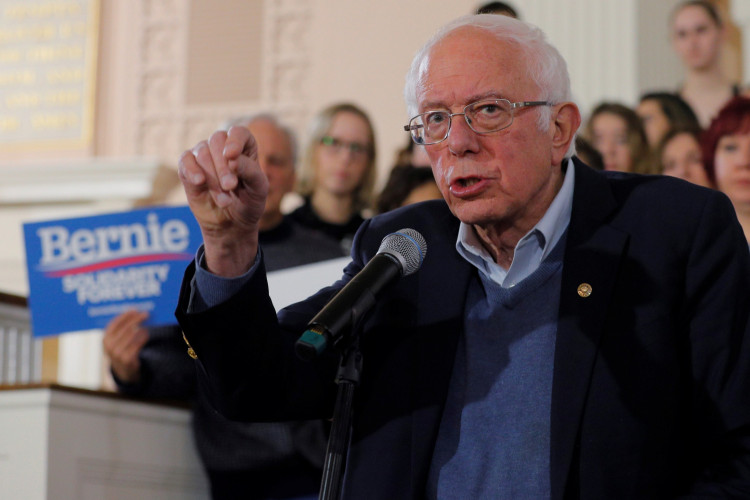Poll after poll showed Sen. Bernie Sanders, an Independent candidate from Vermont, winning the Democratic Nevada caucus on February 22 and he did just that by annihilating his opposition.
His decisive victory -- CNN has him winning 46.6% of the vote to second-place Joe Biden's 19.2% with half of the precincts counted -- quickly installed him as the prohibitive favorite to win the party's nomination going into Super Tuesday on March 3. CNN called the Nevada primary for Sanders Friday evening.
In the two previous contests, Sanders was a close second to former mayor Pete Buttigieg in the chaotic Iowa caucuses on February 3 in the delegate count but won the popular vote. He handily won the New Hampshire primary on February 11. He's now won Nevada, a state with a larger population of non-whites.
A candidate will need 1,991 delegates to win the Democratic Party's nomination for president. Nevada has 36 delegates at stake, with the winner getting the largest number. After the Iowa caucuses and the New Hampshire primary, Buttigieg has 22 delegates and Sanders 21. Sanders is projected to win nine delegates in Nevada, boosting his total to 30.
Racially diverse Nevada is 30% Latino. In contrast, both Iowa and New Hampshire is state dominated by the white population. Latinos and young voters, surprisingly, were the keys to Sander's Nevada win. Surprising because at 78, Biden is the oldest candidate running for the Democratic Party's presidential nomination.
Among Nevada's voters under the age of 30, who comprise 17% of the electorate, 66% voted for Sanders. On the other hand, Biden led among caucusgoers over 65, with around 25% supporting him.
Sanders won the Latino vote by 54%, according to early entrance polls. This total was some 40 percentage points larger than Buttigieg's. Sanders also won among white voters.
Sanders won 44% of non-white voters based on entrance polls. This finding was a huge blow to Biden, the erstwhile frontrunner, who still sees minority voters as the engine propelling him to the party's nomination. After embarrassing loses in Iowa and New Hampshire, both of which are white states, Biden was hoping for a win in Nevada to bolster his claim to being frontrunner but he did apparently win the black vote.
Sanders praised the "multigenerational, multi-racial coalition" his campaign built in Nevada as the key to his win. He said this coalition gave his campaign a fresh burst of momentum after his win in New Hampshire and his near-victory in Iowa.
"In Nevada, and in New Hampshire and in Iowa -- what we showed is that our volunteers are prepared to knock on hundreds and hundreds of thousands of doors" said Sanders. "That no campaign has a grassroots a movement like we do, which is another reason why we're going to win this election."
He said President Donald Trump and his friends think they're going to win the November election. They think they're going to win the election "by dividing our people up, based on the color of their skin, or where they were born, or their religion or their sexual orientation. We are going to win because we are doing exactly the opposite. We're bringing our people together."






